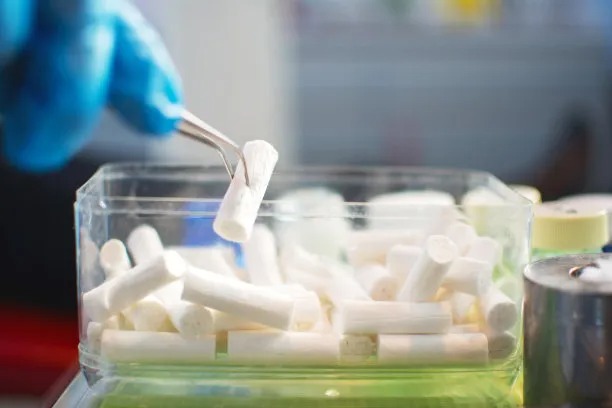Summary: Extracting a tooth may seem like a daunting decision, but it is often a crucial intervention for maintaining optimal dental health. This article delves into the importance of tooth extraction, emphasizing its role in preventing further dental complications, how it aids in pain management, its influence on oral hygiene, and its contribution to overall well-being. By understanding these key factors, individuals can make informed decisions regarding their dental health, leading to better outcomes and improved quality of life. From preventing the spread of infection to enhancing self-esteem through corrective procedures, tooth extraction may often be a beneficial step towards reclaiming ones dental and overall health.
1. Preventing Further Dental Complications

One of the primary reasons for tooth extraction is to prevent the development of further dental issues. When a tooth becomes severely decayed or infected, it can lead to more serious complications, such as abscesses or systemic infections. By removing the compromised tooth, one can effectively halt the progression of these conditions, protecting surrounding teeth and tissues.
Moreover, retaining a tooth that is beyond saving can result in additional expenses for dental procedures aimed at restoration or replacement. Extracting a tooth promptly can often minimize future treatments and the associated costs, making it a financially prudent decision in the long run.
Additionally, overcrowding in the mouth can lead to misalignment and other issues. Extracting teeth that are pushing against neighboring teeth can create space, allowing for better alignment and providing the necessary room for orthodontic treatments if required.
2. Effective Pain Management Solutions
Pain is often one of the most immediate concerns associated with dental issues. A problematic tooth can cause severe discomfort, affecting daily activities and overall well-being. Extraction can serve as a definitive solution for this pain, offering immediate relief.
Moreover, the pain caused by dental issues can become chronic if left untreated. By opting for tooth extraction, individuals can avoid the prolonged suffering associated with conditions like tooth decay or periodontal disease, leading to improved quality of life.
Post-extraction recovery generally involves manageable discomfort, often alleviated by over-the-counter pain relievers. This short recovery period typically contrasts sharply with the ongoing pain associated with keeping a damaged tooth, further highlighting the role of extraction in pain management.
3. Enhancing Oral Hygiene Practices
Maintaining proper oral hygiene can become increasingly difficult when dealing with damaged or overcrowded teeth. Tooth extraction can play an essential role in simplifying oral care routines. With fewer teeth to care for or when compromised teeth are removed, individuals can more easily maintain a clean and healthy mouth.
Moreover, compromised teeth often harbor bacteria, contributing to poor oral health. Removing such teeth can significantly reduce the risk of infections and cavities, paving the way for better dental hygiene practices and enhanced overall dental health.
By making oral hygiene more accessible through tooth extraction, individuals are more likely to adhere to dental care routines, ensuring not only a healthier mouth but also the prevention of future dental problems.
4. Impact on Overall Health and Well-being
The state of one’s dental health can have a profound impact on overall well-being. Poor dental health has been linked to a myriad of systemic issues, including cardiovascular diseases and diabetes. By extracting problematic teeth, individuals can reduce the risk of these potentially serious health issues, promoting better overall health.
Furthermore, the psychological effects of dental health should not be underestimated. Unsightly or damaged teeth can lead to lower self-esteem and social anxiety. However, tooth extraction followed by appropriate restorative or cosmetic procedures can greatly enhance one’s confidence and facilitate social interactions.
In this way, tooth extraction isn’t simply a matter of dental health; it’s a pivotal component of holistic well-being that influences both physical health and mental health, fostering a healthier lifestyle.
Summary:
Overall, understanding the importance of tooth extraction highlights its pivotal role in preventing further complications, effectively managing pain, enhancing oral hygiene, and promoting overall well-being. Such knowledge empowers individuals to prioritize their dental health decisions and recognize when extraction may be necessary.
By acknowledging the broader implications of tooth extraction, individuals can take significant steps toward achieving not only better dental health but also improved quality of life. Maintaining your dental health is paramount for your overall well-being!
This article is compiled by Vickong Dental and the content is for reference only
Vickong Dental
Vickong Dental is a large medical group established in Hong Kong in 2008 by professors from well-known medical universities in Guangdong and Hong Kong, as well as medical doctors from key national '985' universities (including Master's supervisors and senior professors). The chain of branches brings together expert dentists with PhDs and Master's degrees from Hong Kong and Mainland China, committed to providing high-quality dental treatment.
"Vickong Dental Practices the University Motto of 'Healing and Serving Society,' with a Stable Operation for Sixteen Years. It Has Been honored with Hong Kong Enterprise Leaders's Choice,' and is a Global Trusted Implant Center for the Nobel Implant System. Recommended by Hong Kong Metro Broadcast and Guangdong Television, it Serves Customers from Over Thirty Countries and Regions, Gaining the Trust and Favor of Citizens from the Guangdong-Hong Kong-Macau Greater Bay Area and Surrounding Cities.

Thousands of customers' unanimous praise
The most recognized and highly recommended dental service by customers in the Guangdong-Hong Kong-Macau Greater Bay Area
We Ensure You Receive Detailed Care and Attention Here
Hong Kong standards, Shenzhen prices, Your Trusted English-speaking dentists

Vickong Dental Medical-Grade Instrument Disinfection Process
Vickong Dental Medical-Grade Instrument Disinfection Process

Vickong Dental Chain: A Warm and Comfortable Environment for Treatment






Appointment Hours

Q&A
Why choose Vickong Dental?
Vickong Dental practices the university motto 「Medicine to Benefit Society」, with each branch bringing together highly qualified dentists with doctoral and master’s degrees from Hong Kong and the Mainland, and has maintained seventeen years of steady operation。Recipient of 「2024 Hong Kong Enterprise Leaders Brand」, 「2025 Hong Kong Enterprise Leaders Brand」, a Nobel Biocare Global Trusted Implant Center, and a brand recommended by Metro Radio Hong Kong and Guangdong TV。
To date, we have served customers from more than thirty countries and regions,earning exceptionally high word-of-mouth recognition and trusted recommendations from residents across the Guangdong-Hong Kong-Macao Greater Bay Area and surrounding cities
We have eight major branches in Zhuhai、Shenzhen,and a consultation and service assurance center in Hong Kong,so you can book a free consultation at any time for any questions,which is very reassuring.
If I do not accept the quotation after the CT scan, will I be charged??
No! As long as the actual treatment has not started, you will not be charged any fees.
Will there be any additional charges during the treatment process?
No, there won’t be any additional charges. Before treatment begins, we will clearly explain the treatment plan and its corresponding fees. Only after the patient agrees and signs the consent form will we proceed with the dental service.
Can I pay in Hong Kong dollars?
Yes. Vickong Dental accepts payment in Hong Kong dollars. The amount will be converted based on the exchange rate of the day, and the applicable rate will be clearly communicated to you in advance.
Can I reschedule my appointment at any time?
Yes. Please contact us via **WeChat** or **WhatsApp** as early as possible, providing your original appointment time and details, along with your preferred new date and time slot for rescheduling.













